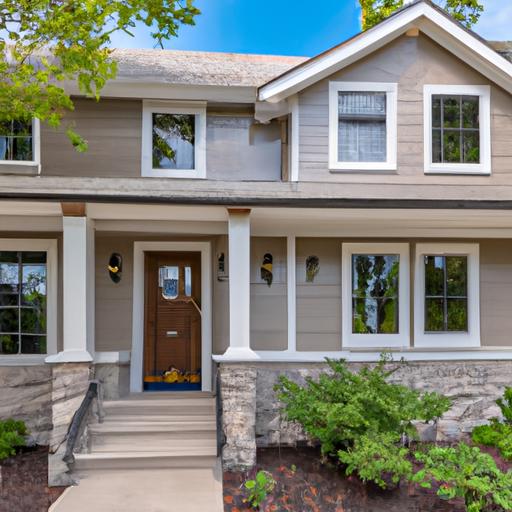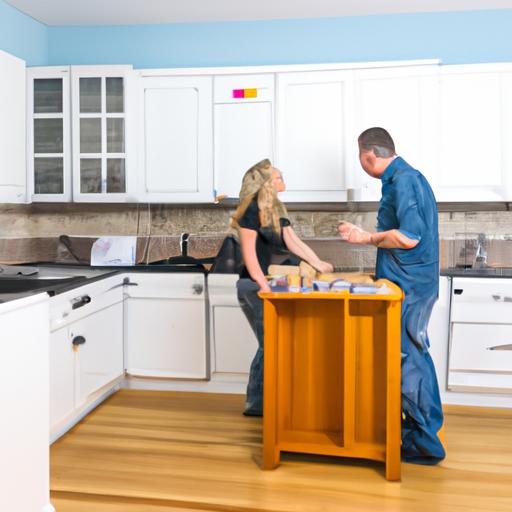Home Improvement Contractor Insurance: Safeguarding Your Business
Introduction
In the dynamic world of home improvement contracting, one crucial element often overlooked is insurance. As a contractor, you’re constantly juggling various projects, deadlines, and client expectations. Amidst this whirlwind, insurance stands as a stalwart shield, protecting your business from unforeseen risks and liabilities.
Understanding the nuances of insurance coverage is paramount for any home improvement contractor. Whether you’re a seasoned professional or just starting out, having the right insurance policy can make all the difference in safeguarding your hard-earned reputation and financial stability. Let’s delve into the realm of home improvement contractor insurance and explore the array of coverage options available to protect your business.
Understanding Home Improvement Contractor Insurance
Definition of Home Improvement Contractor Insurance
Home improvement contractor insurance serves as a comprehensive safety net specifically tailored to the unique risks faced by contractors in the home improvement industry. This specialized insurance coverage provides protection against a wide range of potential liabilities, ensuring that contractors can focus on their craft without the looming shadow of financial uncertainty.
Types of Coverage Included in a Typical Policy
A typical home improvement contractor insurance policy encompasses various types of coverage to address different aspects of risk. From general liability insurance, which covers property damage and bodily injury, to workers’ compensation insurance, which provides benefits to employees injured on the job, these coverages work in tandem to shield contractors from potential financial losses.
Importance of Having Insurance as a Contractor
For contractors, insurance is not just a safety precaution; it’s a vital aspect of conducting business ethically and responsibly. By investing in comprehensive insurance coverage, contractors demonstrate their commitment to protecting their clients, employees, and assets. In the unpredictable world of home improvement projects, insurance offers peace of mind and financial security, allowing contractors to focus on delivering exceptional results without the fear of unforeseen liabilities.
Benefits of Home Improvement Contractor Insurance
Protection against Liability Claims
One of the primary benefits of having home improvement contractor insurance is the protection it offers against liability claims. In the construction industry, accidents can happen unexpectedly, leading to property damage or bodily injury. With the right insurance coverage in place, you can mitigate the financial burden of potential lawsuits and claims filed against your business. From slip-and-fall accidents to damage caused by faulty workmanship, insurance provides a safety net to shield you from costly legal proceedings.
Coverage for Property Damage
Another key advantage of home improvement contractor insurance is the coverage it provides for property damage. As a contractor, you work with valuable assets and materials on a daily basis. Accidents such as fires, theft, or vandalism can result in significant financial losses if not adequately insured. Having property damage coverage ensures that your tools, equipment, and materials are protected, giving you peace of mind as you tackle various projects.
Financial Security in Case of Accidents or Injuries
Accidents and injuries are inherent risks in the construction industry, and having the right insurance can provide much-needed financial security in such situations. Whether it’s a worker getting injured on the job site or accidental damage to a client’s property, insurance coverage can help cover medical expenses, legal fees, and repair costs. By investing in comprehensive insurance, you can safeguard your business against unforeseen events and ensure continuity even in challenging circumstances.
How to Find the Right Insurance Policy
Researching Different Insurance Providers
When embarking on the quest for the perfect insurance policy, the first step is to conduct thorough research on various insurance providers. Look beyond the surface-level offerings and delve into the reputation, customer reviews, and track record of each provider. Seek out insurance companies with a solid standing in the industry and a history of reliable service to ensure you’re entrusting your business’s protection to a reputable partner.
Comparing Coverage Options and Premiums
Once you’ve narrowed down your list of potential insurance providers, it’s time to compare the coverage options and premiums they offer. Take a close look at the specifics of each policy, including the types of coverage included, limits of liability, and any exclusions. Consider your business’s unique needs and the level of protection required to make an informed decision. Additionally, weigh the premiums against the coverage provided to find a balance that suits your budget without compromising on essential protections.
Understanding the Terms and Conditions of the Policy
Before finalizing your choice of insurance policy, it’s crucial to thoroughly understand the terms and conditions outlined in the agreement. Pay close attention to any exclusions, limitations, and requirements stipulated in the policy to avoid any surprises in the event of a claim. If there are any aspects of the policy that are unclear, don’t hesitate to seek clarification from the insurance provider or a professional advisor to ensure you have a comprehensive understanding of the coverage provided.
Factors to Consider When Choosing Home Improvement Contractor Insurance
Type of Projects You Work On
When selecting a home improvement contractor insurance policy, the nature of the projects you undertake plays a pivotal role. Whether you specialize in small-scale renovations, large-scale remodels, or niche services like roofing or electrical work, the type of projects you work on will influence the level of coverage you require. For instance, contractors engaged in high-risk activities such as roofing may need additional coverage for liability and property damage.
Size of Your Business
The size of your contracting business is another critical factor to consider when choosing insurance. Larger businesses with multiple employees and extensive operations may need broader coverage to protect their assets and workforce. Conversely, smaller businesses may opt for more compact insurance packages tailored to their specific needs and budget constraints. Evaluating the scale of your business operations will help determine the appropriate level of coverage to ensure comprehensive protection.
Budget for Insurance Premiums
While insurance is essential for mitigating risks, it’s also important to consider your budget constraints when selecting a policy. Assessing your financial capabilities and determining a feasible insurance budget will guide you in choosing a policy that strikes a balance between comprehensive coverage and affordability. By aligning your insurance needs with your budgetary constraints, you can secure the necessary protection without compromising your financial stability.
Conclusion
In conclusion, securing proper insurance as a home improvement contractor is not just a legal requirement but a strategic investment in the longevity and success of your business. By understanding the various types of coverage available and choosing the right policy tailored to your specific needs, you can mitigate risks, protect your assets, and build a solid foundation for growth.
Remember, accidents happen, but being prepared with the right insurance coverage can mean the difference between a minor setback and a catastrophic loss. So, take the time to research, compare, and select a policy that provides comprehensive protection for both you and your clients. With the right insurance in place, you can focus on what you do best – transforming houses into dream homes, all while having peace of mind knowing you’re covered.






